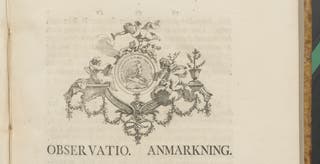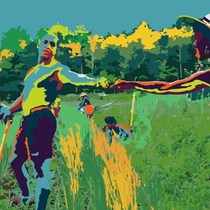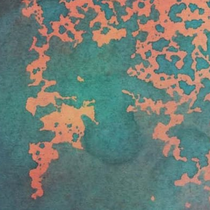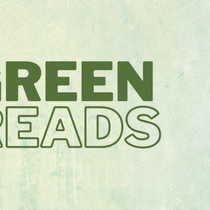New Acquisition: Museum Tessinianum
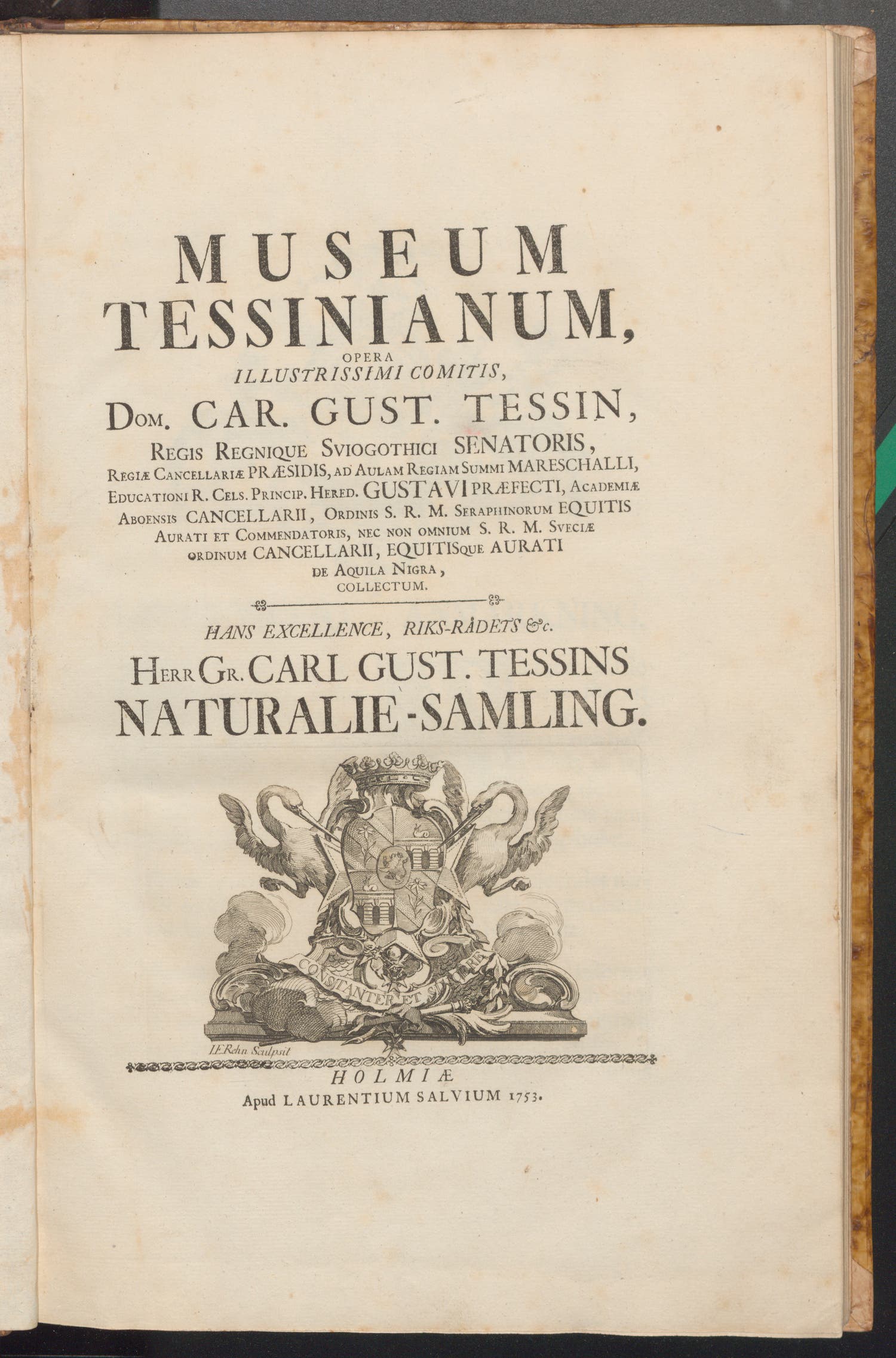
Carl Gustaf Tessin and Carl Linnaeus, Museum Tessinianum. Stockholm: Laurentium Salvium, 1753.
Carl Gustaf Tessin and Carl Linnaeus, Museum Tessinianum. Stockholm: Laurentium Salvium, 1753.
The first application of Carl Linnaeus’ now-famous taxonomy, via the binomial system, appears in a most unlikely place: a catalog of Count Carl Gustaf Tessin’s mineralogical collection. A copy of this catalog, printed in a very small edition by Tessin, was acquired by the Library in October of 2023 at the Boston Antiquarian Book Fair, from the bookseller Antiquariaat Schierenberg.
The plate on display at the fair was arresting, and the description of the book by the bookseller – that it was a catalog of a “wunderkammer,” a cabinet of, in this case, mineralogical, curiosities, added to the appeal of the book. Surprisingly, Linnaeus’ name does not appear on the title page. The text is by Count Tessin, but it was edited by Linnaeus, and the text of the book is full of praise and acknowledgements of Linnaeus. Take, for example, the profile portrait of Linnaeus above the text.
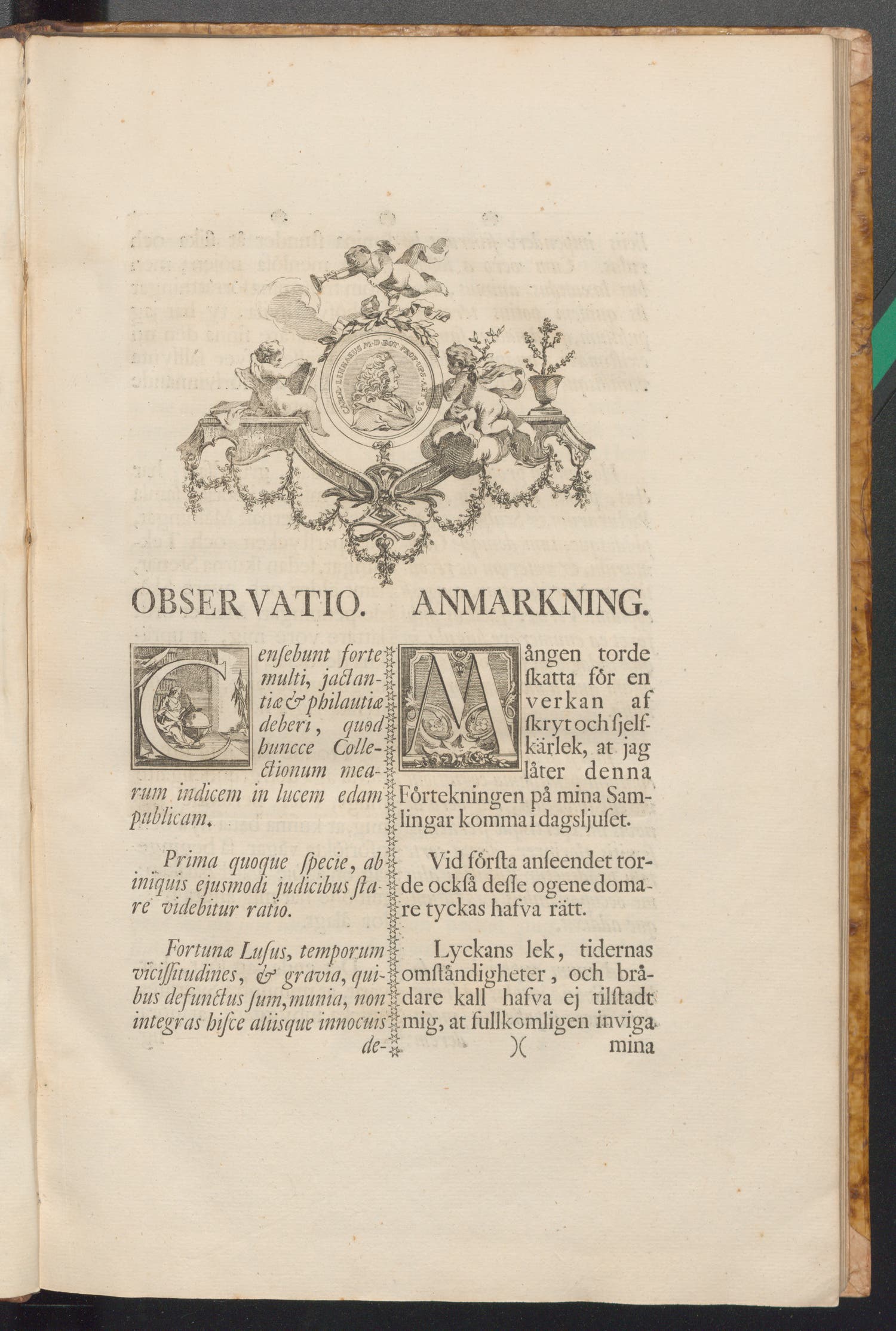
Tessin also recognizes Linnaeus on the second page of text: Id unum nunc expeto, ut, in me aliisque informadis, acumine proficiam perspicacis Archiatri nostri, domini Caroli Linnaei, qui, meo rogatu, recesuit, ordine disposuit, atque observationibus locupletavit hunc indecem… . [I may profit with the keenness of our perspicacious archiatrist, Mr. Charles Linnaeus, who, at my request, reviewed, arranged in order, and enriched this list with observations.] Indeed, later in the text Tessin states that “he [Linnaeus] alone should have the honor” associated with the book.
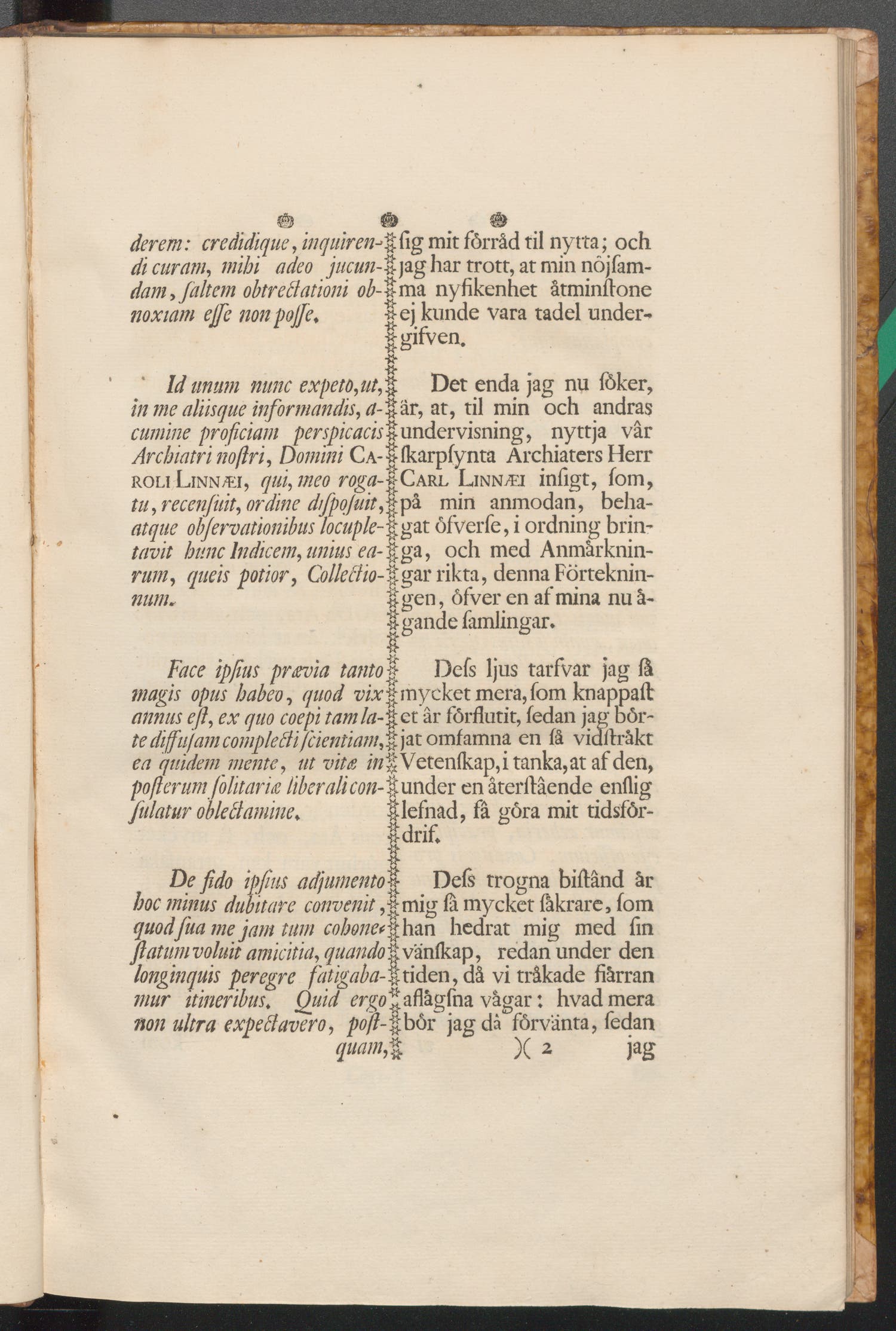
The text is accompanied by 12 engraved plates of specimens from Tessin’s collection, all, unsurprisingly, of fossils, minerals, or rocks more generally. The plates were engraved by Per Gustaf Floding, a noted 18th century Swedish engraver.
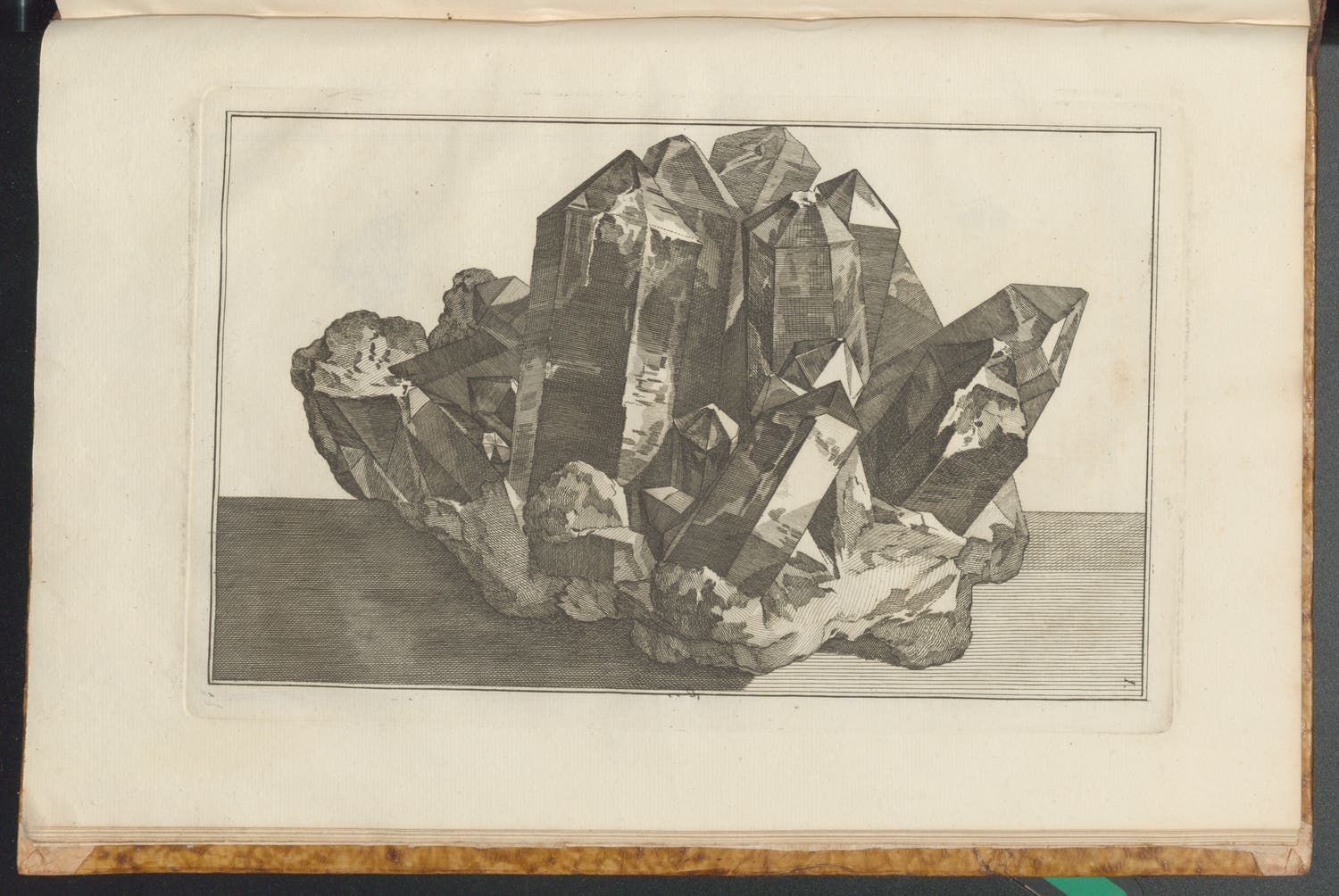
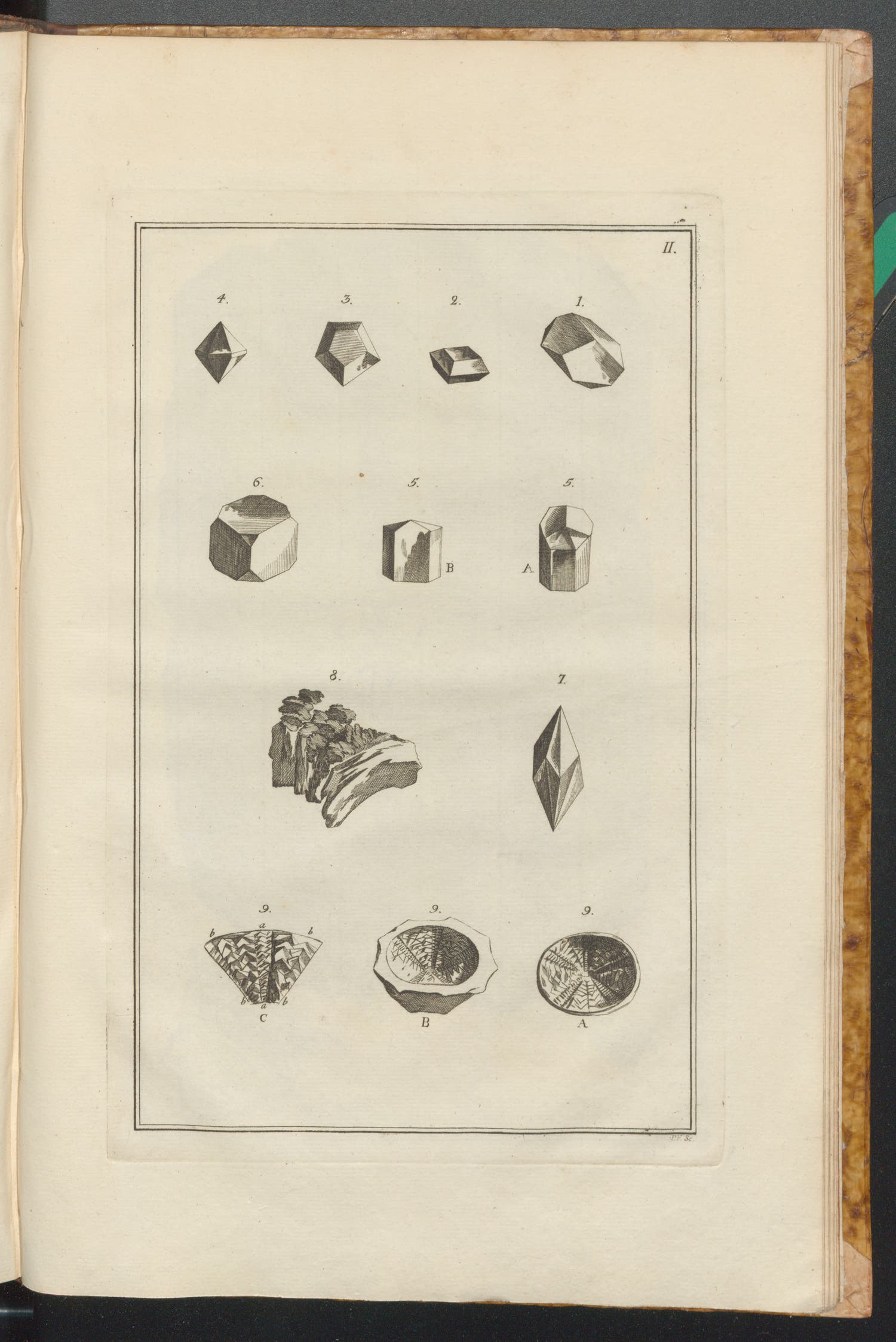
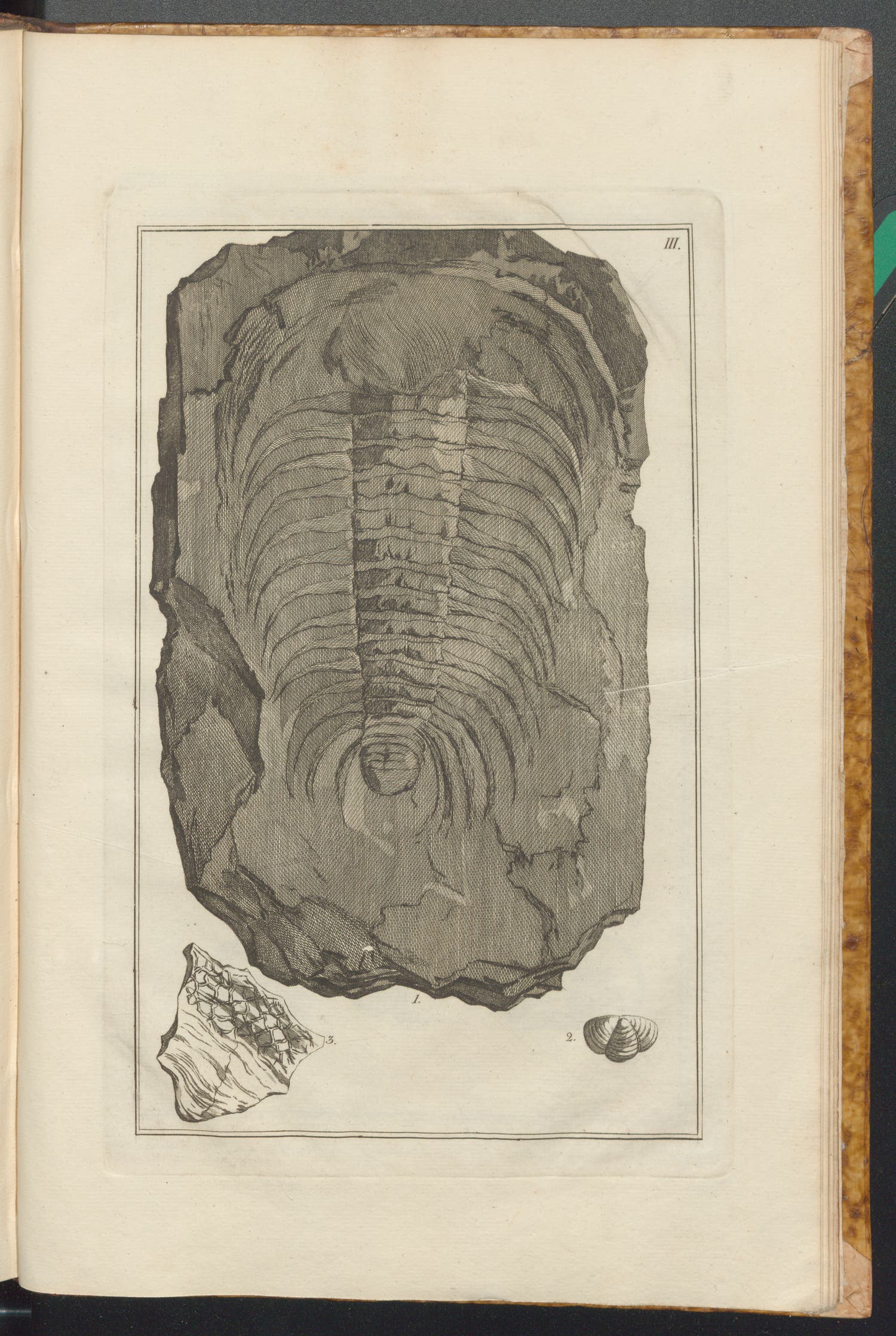
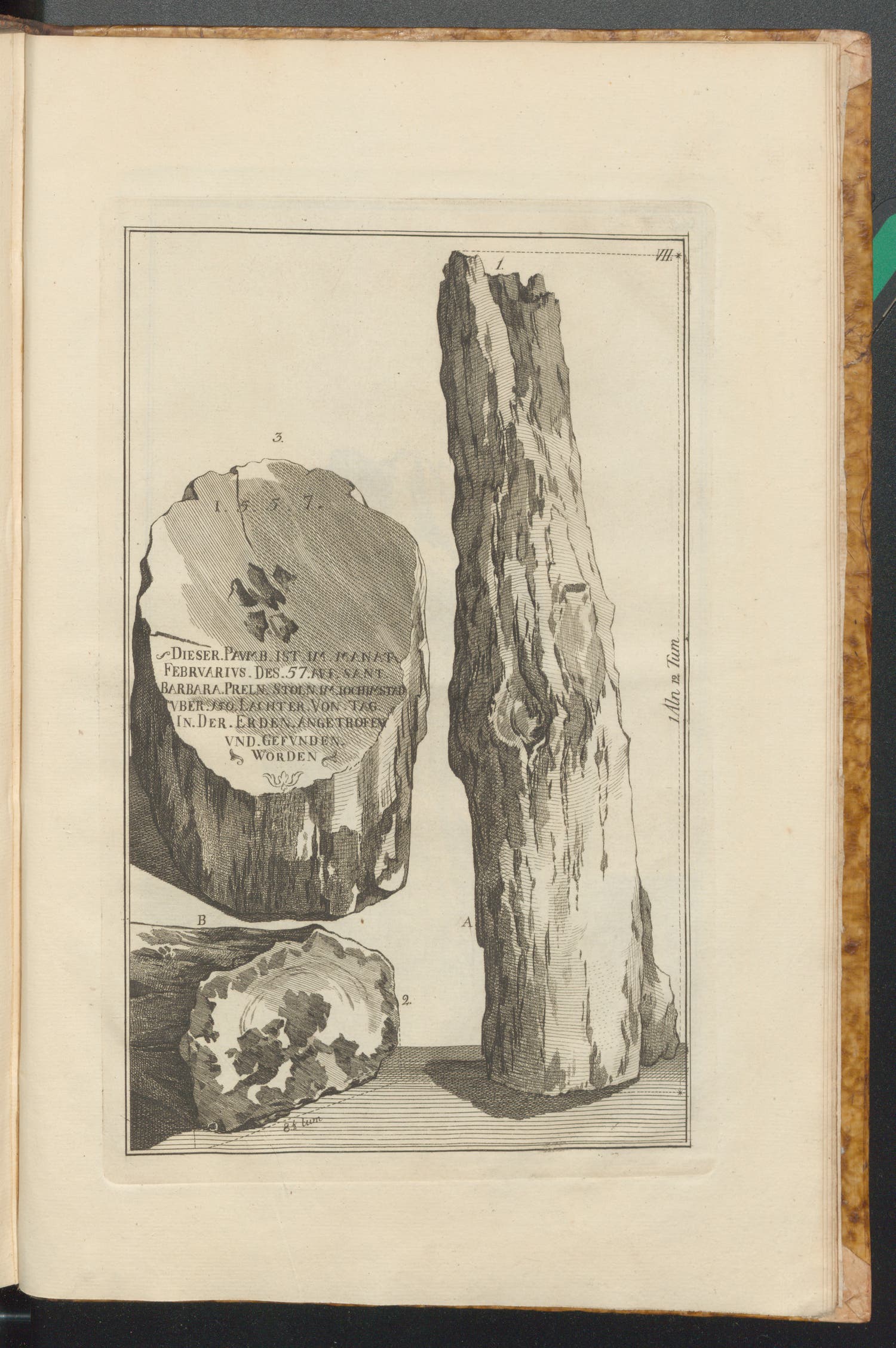
The book is bound in a generally unremarkable mottled calf and paste paper over boards binding, but on the front pastedown is a very large and colorful linocut bookplate with the text “Ex libris Erici Montell Stabilitate Montis,” which is the bookplate of Erik Montell (1911-1999), a Swedish lawyer, civil servant, and bibliophile.
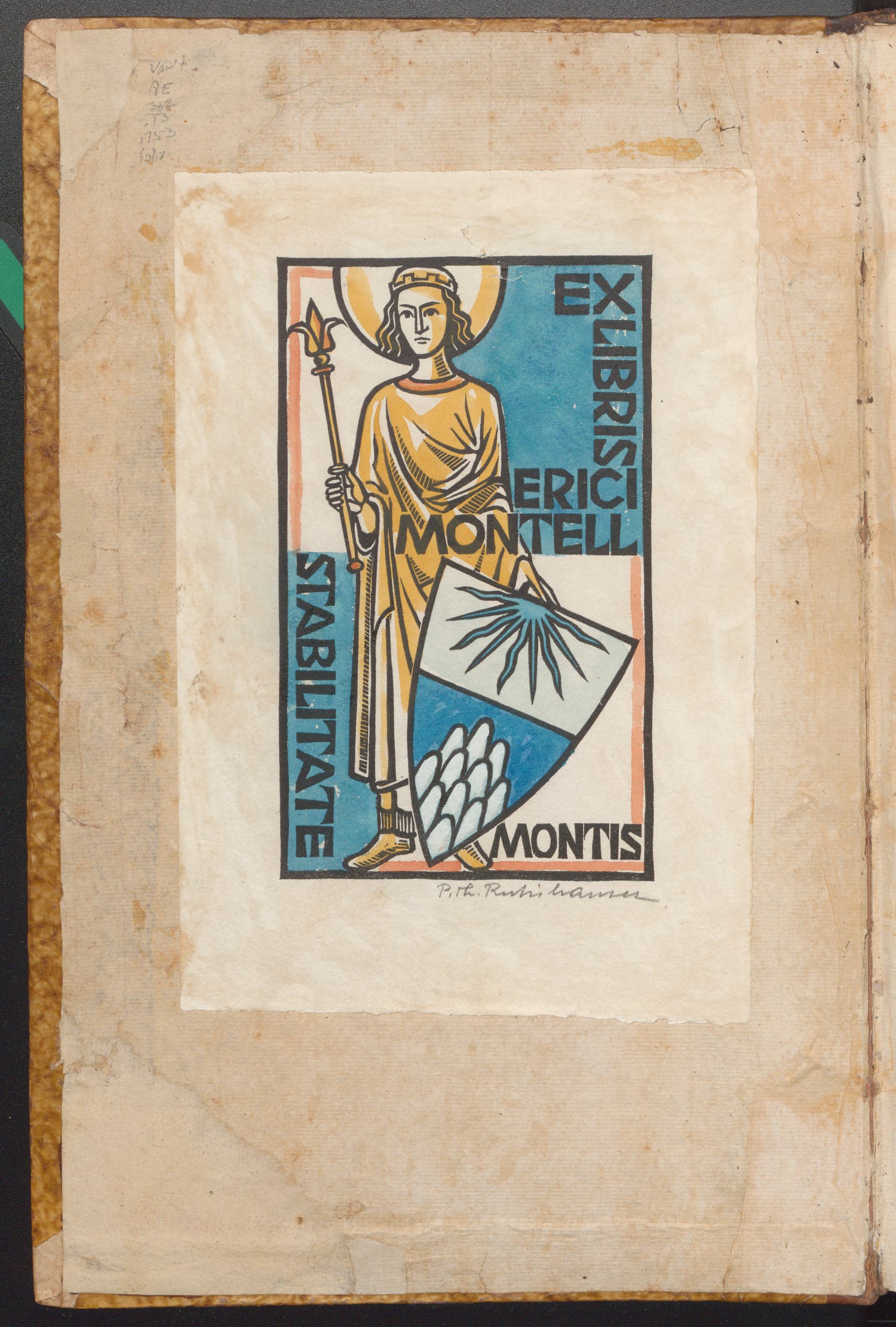
The combination of the first application of Linnaeus’ work, as well as the subject matter of the book, made the book an excellent fit for the Library.

